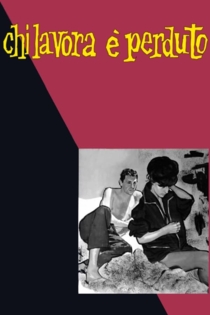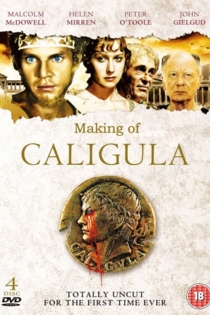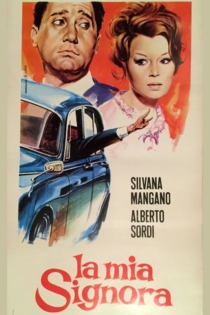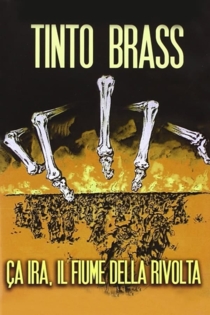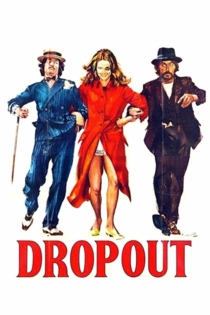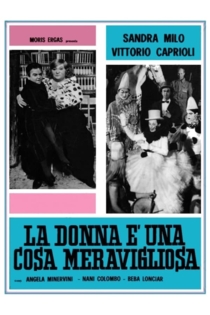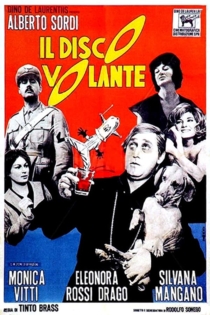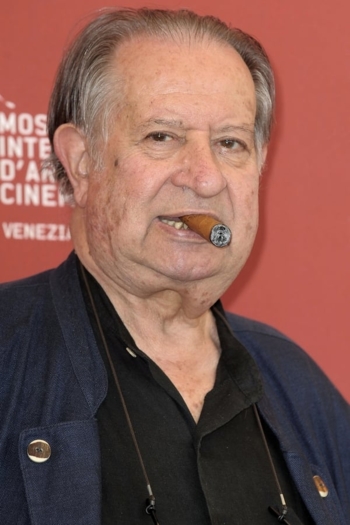
Tinto Brass
1933 (92 года)After Salon Kitty (1976) and Caligula (1979), the style of his films gradually changed towards erotic films. Caligula was originally supposed to be a satire on power instead of an erotic film, but the producers changed and re-edited the film entirely without Brass's consent, removing many political and comical scenes, and shooting sexually explicit sequences, to make the film a pornographic drama. The director demanded that his name be stricken from the credits, and he is only credited for "Principal Photography". Despite this, the film remains his most widely viewed work (and the highest-grossing Italian film released in the United States). Other notable works of Brass's later period include The Key (1983) and Senso '45 (2002). He was making films into his seventies.
Case Chiuse
Filippo Soldi
Tinto Brass, Lando Buzzanca
February 20, 1958: the Italian Parliament approved Law No. 75, the "Merlin Law": the end of an institution of Italian society for ages: the brothel. The Italian writer Dino Buzzati likens the event to the fire in the library of Alexandria in Egypt. The brothel is an institution that has spanned the centuries,thru different aspects, different forms. It is an institution that, in Italy, at least officially no longer exists. But it is also an institution that in other countries, still exists. The doc offers a journey that will start from the ruins of Pompeii brothel to get to the lights of Artemis in Berlin, with its soft drinks and its attention to the well-being and to the erotic papyrus from the Egyptian Museum of Turin and the giant Paradise in Girona, that El Pais has called the biggest brothel in Europe.
Case Chiuse

Ultimo metrò
Andrea Prandstraller
Debora Calì, Jarno Berardi
A young man enters the Rome Metro with a friend, where they notice a woman who has just left the restroom with her dress accidentally tucked into her panties. They tell her about her inadvertent exposure, after which one of the boys boards a train, leaving his besotted friend standing on the platform - totally smitten with the lovely young lady. The two are waiting on opposite platforms, where they await the last train. The young man proclaims his love at first sight - telling her she's the most beautiful woman he's ever seen. Obviously flattered, the woman reciprocates in a way the young man will never forget...
The Last Subway
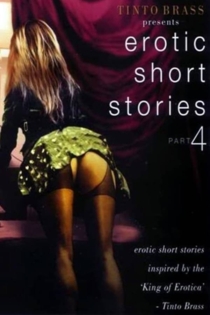
Inferno Rosso. Joe D'Amato sulla via dell'eccesso
Massimiliano Zanin, Manlio Gomarasca
Joe D'Amato, Aristide Massaccesi
Who was Joe D’amato- Aristide Massaccesi under his civil status? A genius of horror in the USA, a master of eroticism in France, the king of porn in Italy. A man with a thousand pseudonyms capable of making over 200 films while simultaneously holding the roles of producer, director, author, director of photography and even camera operator. An artisan of cinema as he liked to call himself, capable of working on all film genres. From spaghetti western to post-atomic, decamerotic to glossy eroticism, and blockbuster porn to bloody horror. Guided by the aesthetics of extremes and supported by an undeniable technical ability, Joe D’Amato pushed himself, and the viewer, beyond all limits following with dedication three rigid principles that have become his stylistic code: Amaze, Shock, Scandalize.
Inferno Rosso: Joe D'Amato on the Road of Excess
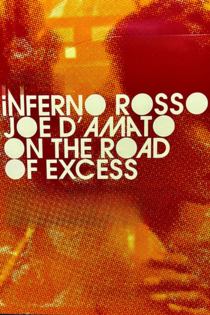
Cercando Valentina
Giancarlo Soldi
Riccardo Vianello, Tinto Brass
1965: Paris, London and Milan all move at the same fast pace, fueled by a fresh creative and rebellious impetus. Guido Crepax picks up on this energy and transfers it to a comic strip in which art, music, design, film and fashion all blend together, breaking with traditional narrative structure. The dreamy photographer Valentina becomes Crepax' alter ego: as lovely as Louise Brooks, as disturbing as one of Lucio Fontana's slashed canvases, as knowing as Bob Dylan's lyrics, and as freewheeling as Charlie Parker's compositions.
Searching for Valentina: The World of Guido Crepax
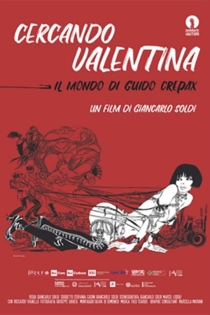
Istintobrass
Massimiliano Zanin
Tinto Brass, Хелен Миррен
One of the most controversial, original and loved figures of Italian cinema. The most censored director of all time. An anarchist of the film, a gifted experimenter, an inventor of dreams. A truly great artist.
Istintobrass
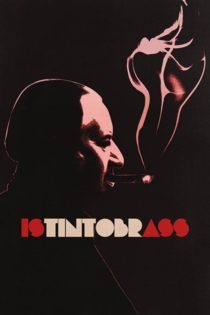
Pecore in erba
Alberto Caviglia
Davide Giordano, Anna Ferruzzo
July 2006. Leonardo Zuliani has vanished. The news from Trastevere in Rome turns into a real national emergency, while a huge throng of followers gathers around the young activist’s house. His mother is beside herself with grief and the entire neighbourhood is paralysed. He’s on every TV channel and the authorities all express their solidarity with the family. Many can’t believe it’s true; they prefer to think it’s just one of his stunts. A genius in conveying his ideas, successful cartoonist, visionary fashion designer, cult author, human rights activist: but who is Leonardo deep down? With the help of leading experts and celebrities, the film traces his life, at last casting light on a key figure of our times
Burning Love
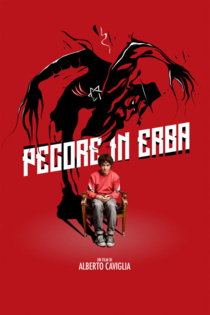
Canepazzo
David Petrucci
Tony Allotta, Marta Bifano
Twenty years ago Marco's father was brutally murdered by a cold-blooded serial killer known as the Crazy Dog. Since then, he has been ceaselessly trying to unveil the chain of events that have resulted in dad's death. Marco contacts Raul Chinna, a well-known criminologist that has made the Dog's bloody legacy his very own field of expertise. As soon Marco and Chinna start to recall the past, they both have to face the fact there is another man obsessed by the murders of Crazy Dog: David Moiraghi, a journalist who's been working for decades on the serial killer. As the truth starts slowly to emerge from the mists of time, Marco has to acknowledge that there is maybe something more that links professor Chinna and Moiraghi. The thin line between truth and fiction starts slowly to blur while Marco is forced once again to face his worst nightmares all over again.
Crazy Dog
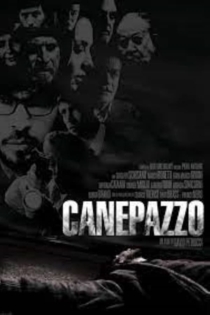
Chi lavora è perduto (In capo al mondo)
Tinto Brass
Sady Rebbot, Pascale Audret
Bonifacio is 27 years old and he is roaming about Venice. He is trying to decide whether to accept a job or not. In so doing, he recalls all his past life: his love story with Gabriella, his old friend Claudio, who had always regarded working as a worthwhile thing, the war, the partisans.
Who Works Is Lost
